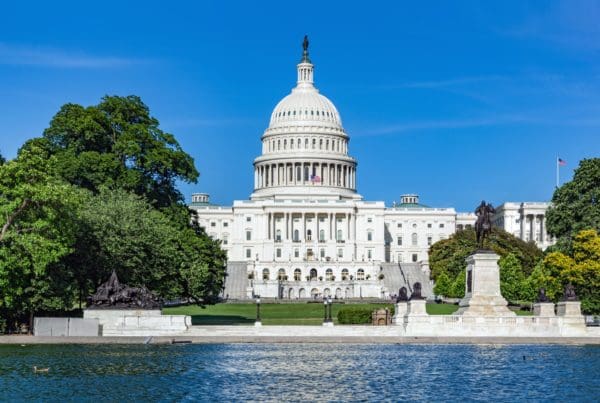Introduction: Upholding Safety and Preparedness
In a world prone to natural disasters, pandemics, and unforeseen emergencies, the role of emergency management agencies has become increasingly vital. These agencies play a crucial part in ensuring the safety and preparedness of communities, coordinating resources, and implementing effective response strategies. This article delves into the multifaceted responsibilities of emergency management agencies, shedding light on their role in safeguarding lives, minimizing damage, and fostering resilience in the face of adversity.
The Role of Emergency Management Agencies
Emergency management agencies serve as the cornerstone of disaster response and preparedness. With their diverse range of tasks, these agencies provide a comprehensive framework for effective emergency management. Here, we explore the main responsibilities that emergency management agencies undertake:
- Developing and Implementing Emergency Plans: One of the primary functions of emergency management agencies is to develop and implement comprehensive emergency plans. These plans outline the strategies, procedures, and resources required to effectively respond to various types of emergencies. By identifying potential risks and vulnerabilities within a community, agencies can tailor their plans to address specific threats, such as natural disasters, public health emergencies, or terrorist incidents.
- Coordinating Emergency Response Efforts: During a crisis, emergency management agencies act as the central hub for coordinating response efforts. They collaborate with various stakeholders, including local government bodies, law enforcement agencies, medical services, and volunteer organizations, to ensure a unified and efficient response. By facilitating communication, resource allocation, and decision-making, these agencies enable effective collaboration and streamline the overall response process.
- Conducting Risk Assessments: To proactively mitigate risks and enhance preparedness, emergency management agencies regularly conduct risk assessments. These assessments involve identifying potential hazards, evaluating their potential impact, and developing strategies to minimize risks. By understanding the specific vulnerabilities of a region, agencies can allocate resources strategically and implement preventive measures accordingly.
- Managing Emergency Operations Centers (EOCs): Emergency Operations Centers (EOCs) serve as command centers during emergencies, bringing together key stakeholders and resources. Emergency management agencies are responsible for establishing and managing these EOCs, ensuring effective communication, information sharing, and coordination among response teams. EOCs serve as a central hub where critical decisions are made, resources are allocated, and situational updates are disseminated.
- Providing Public Education and Outreach: Emergency management agencies recognize the importance of public education in building resilient communities. These agencies develop and disseminate educational programs and materials that inform the public about potential hazards, preparedness measures, and appropriate response actions. By promoting awareness and empowering individuals with knowledge, emergency management agencies foster a culture of preparedness and ensure that communities are better equipped to face emergencies.
- Coordinating Disaster Recovery Efforts: The role of emergency management agencies extends beyond the immediate response to disasters. These agencies also play a pivotal role in coordinating long-term recovery efforts. From assessing damage and organizing debris removal to facilitating financial assistance and supporting community rebuilding, they work closely with federal agencies, non-profit organizations, and local communities to expedite the recovery process and restore normalcy.
Conclusion: Safeguarding Communities in Times of Crisis
The role of emergency management agencies is of paramount importance in ensuring the safety, preparedness, and resilience of communities facing emergencies. From developing comprehensive emergency plans to coordinating response efforts and facilitating recovery, these agencies work tirelessly to protect lives and property. Through collaboration, risk assessment, public education, and effective coordination, emergency management agencies play a crucial role in minimizing the impact of disasters and fostering a culture of preparedness. By understanding and appreciating the critical role these agencies play, we can collectively work towards building safer and more resilient communities.

Emergency Management Agencies Ensuring Safety and Preparedness
Frequently Asked Questions (FAQs)
Here are some common questions regarding the role of emergency management agencies:
-
What is the primary goal of emergency management agencies?
- The primary goal of emergency management agencies is to protect lives and property by minimizing the impact of emergencies and facilitating a swift recovery.
-
How do emergency management agencies prepare for potential disasters?
- Emergency management agencies prepare for potential disasters by conducting risk assessments, developing emergency plans, coordinating response efforts, and educating the public about preparedness measures.
-
What is the significance of coordinating emergency response efforts?
- Coordinating emergency response efforts is essential to ensure a swift and effective response to emergencies. By bringing together various stakeholders, emergency management agencies can optimize the allocation of resources, streamline communication, and avoid duplication of efforts. This coordinated approach enhances the overall response capacity and helps save lives and minimize damage.
-
How do emergency management agencies collaborate with other organizations during emergencies?
- Emergency management agencies collaborate with a wide range of organizations during emergencies, including government agencies, non-profit organizations, private sector entities, and volunteer groups. By fostering partnerships and leveraging the expertise and resources of these organizations, emergency management agencies can enhance their response capabilities and effectively address the diverse needs of communities in crisis.
-
What role do emergency management agencies play in disaster recovery?
- Emergency management agencies play a crucial role in coordinating and supporting disaster recovery efforts. They work closely with federal agencies, non-profit organizations, and local communities to assess damage, secure funding for recovery projects, and facilitate the rebuilding process. By providing guidance, resources, and assistance, these agencies help communities recover and rebuild in a sustainable and resilient manner.
-
How can individuals contribute to emergency management efforts?
- Individuals can contribute to emergency management efforts by staying informed about potential hazards, following preparedness guidelines, and actively participating in community preparedness initiatives. By being proactive and responsible, individuals can help reduce the burden on emergency management agencies and enhance the overall resilience of their communities.





